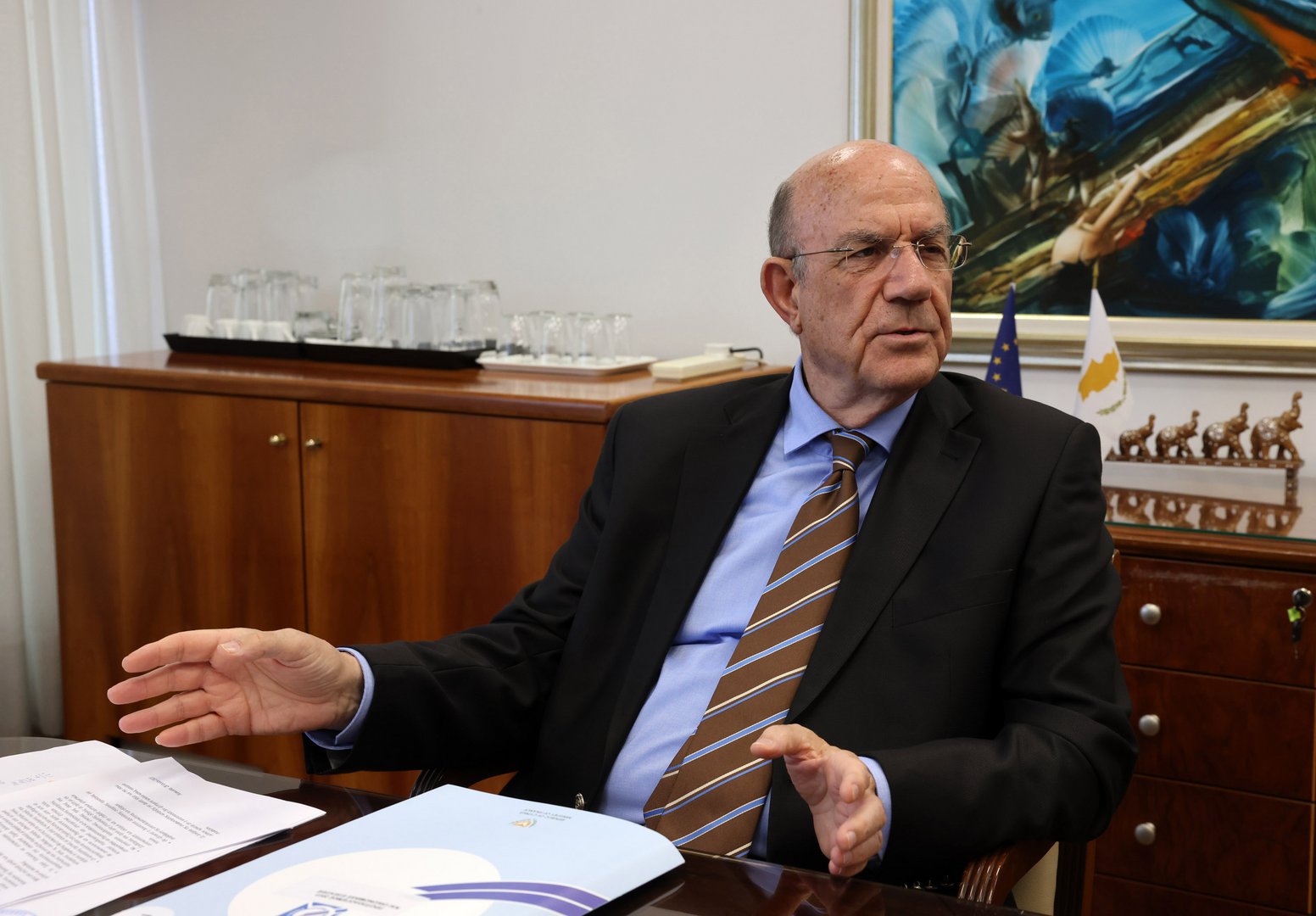Two separate studies conducted by two “serious and reliable” organisations show that the Great Sea Interconnector project “is not sustainable”, Finance Minister Makis Keravnos said on Friday.
Speaking to Politis radio, he said the interconnector project, which would, if completed, connect the electricity grids of Greece, Cyprus and Israel, is “essentially frozen” and is “not being implemented at the moment”.
As such, he said, the Cyprus energy regulatory authority (Cera)’s decision to approve in principle the payment of €25 million to Greece’s independent transmission system operator (Admie) to help finance the project “raises concerns”.
“There are questions regarding the criteria it uses, the logic it follows … It seems to me to be a direct argument for a project which is not being implemented, a project which is frozen, a project over which there are serious doubts over whether it will be implemented,” he said.
Asked why, given the doubts he raised, the finance ministry had decided to include €25m for a payment to Admie in its budget for 2025, he said the decision had been made pursuant to a decision made by Cera.
That decision, he said, “stated that if the project were to begin to be implemented in 2025, from January 1, 2025, lasting until 2029, we would allocate €25m per year, but consumers would not pay”.
“Therefore, the government … said that when the issue arises, we will not burden consumers with this amount in a country where the price of electricity is already high, and more costs onto consumers’ bills at a time when the government had a programme in place to subsidise the price of electricity,” he said.
He then said that while the government has been aiming to avoid levying extra costs onto consumers, this creates “a bit of a pseudo-dilemma”, given that if the Republic of Cyprus does pay the €25m per year until 2029 that Admie had demanded, it will in some way be funded by taxpayers.
“Taxpayers’ money will be paid so that consumers do not have to pay, but all taxpayers are also consumers. I do not know anyone who does not use electricity,” he said.
Then asked what would have to be different for he and his ministry to change stance on the matter and be more forthcoming with the €25m demanded by Admie, he said his stance would change “if the project were being implemented right now and were at a good stage”.
He added that seabed surveys to determine where cables we laid “have not even been completed”, and that the completion of those surveys is “decisive for the total cost of the project”.
As such, he added, “we are not in a position to know” what the project will cost in total.
On this matter, he said the degree to which the project has been implemented “is directly linked to geopolitical risk”.
This “geopolitical risk”, he added, “was known from the start”, but has now become “one of the reasons, perhaps the most serious” behind the lack of progress.
“It is Turkey’s intervention, to speak very seriously and clearly, which does not allow for the seabed surveys to be completed and for the interconnection to proceed,” he said.
Asked whether a potential failure of the interconnector project may create a “crisis” in relations between Cyprus and Greece, he said there is “no evidence of such a crisis” because his ministry was “very clear from the beginning”.
“In any case, I consider it absurd to proceed with payments for a project which is not currently being implemented and for which no one has given assurances that it will be implemented,” he said.
His comments came after Energy Minister George Papanastasiou had stressed following Cera’s announcement that the potential payment of the €25m is “a matter between the governments” of Cyprus and Greece, and that Cera’s agreement in principle does not automatically mean that €25m will be sent to Admie.
He said that for the money to be sent, the project must be in progress in its entirety, and not just “in a single phase”, before going on to explain the structure of the payment Admie had demanded.
“Admie had claimed expenses of €250m. Cera, with its advisers, decided on Thursday that €82m of those costs are justified. However, just to the existence of a ceiling for the payment of €25m per year for five years … of that €82m, only €25m can be paid in 2025. The remaining €57m will be carried over to when the interconnector is operational,” he said.
He stressed that while Cera is the competent body to authorise payments, the sourcing of those payments is a “political issue”.






Click here to change your cookie preferences